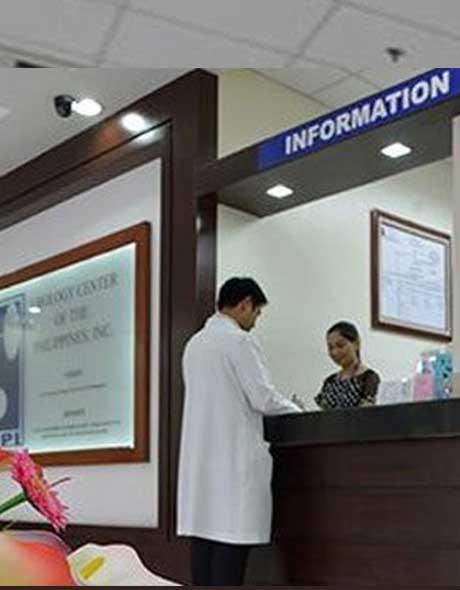UCPI - Our Services
Urologic Surgeries
Urologic surgery is the integration of surgical activities for the pelvis—the colon, urogenital, and gynecological organs—primarily for the treatment of obstructions, dysfunction, malignancies, and inflammatory diseases. Major urologic surgery includes radical and partial resections for malignant and benign conditions; and implantation and diversion surgeries.Common urologic operations include:
- renal (kidney) surgery
- kidney removal (nephrectomy)
- surgery of the ureters, including ureterolithotomy or removal of calculus (stones) in the ureters
- bladder surgery
- pelvic lymph node dissection
- prostatic surgery, removal of the prostate
- testicular (scrotal) surgery
- urethra surgery
- surgery to the penis
Purpose
Conditions that commonly dictate a need for urologic surgery include neurogenic sources like spinal cord injury; injuries to the pelvic organs; chronic digestive and urinary diseases; as well as prostate infections and inflammations. There are many other common chronic and malignant diseases that can benefit from resection, surgical augmentation, or surgery to clear obstructions. These conditions impact the digestive, renal, and reproductive systems.
Most organs are susceptible to cancer in the form of tumors and invasion of the surrounding tissue. Urologic malignancies are on the rise. Other conditions that are seen more frequently include kidney stones, diseases and infections; pancreatic diseases; ulcerative colitis; penile dysfunction; and infections of the genitourinary tract.
Urologic surgery has been revolutionized by striking advances in urodynamic diagnostic systems. Changes in these areas have been particularly beneficial for urologic surgery: laparascopy, endoscopic examination for colon cancer, implantation procedures, and imaging techniques. These procedural and imaging advances have brought the field of urology to a highly active and innovative stage, with new surgical options created each year.
Diagnosis/Preparation
- Testing is often required to determine if a patient is better suited for open or laparoscopic surgery.
- Blood tests for some cancers, as well as function tests for the affected organs, will be required.
- Radiographic or ultrasound techniques are helpful in providing images of abnormalities.
- Cystoscopy is often used with bladder and urethra surgery. In this procedure, a thin telescope-like instrument is inserted directly into the bladder.
- Disorders of the colon may be studied with endoscopes, imaging instruments inserted directly into the colon.
- Urodynamic studies of the bladder and sphincter determine how the bladder fills and empties.
- Digital rectal exams diagnose prostatic disorders. In this procedure, the physician feels the prostate with a gloved, lubricated finger inserted into the rectum.
References:
- Walsh, P. Campbell's Urology. 8th ed. Elsevier ScieHedican, S.P. "Laparoscopy in Urology." Surgical Clinics of North America 80, no.5 (October 1, 2000): 1465-85.
- Leng, W. and E.J. McGuire. "Reconstructive Urology Surgical Craft: Laparoscopic Live Donor Nephrectomy." Urologic Clinics of North America 26, no.1 (February 1999).
- Leung, A.K.H., et.al. "Critical Care and the Urologic Patient." Critical Care Clinics 19, no.1 (January 2003).
- American Society of Nephrology. 1725 Eye Street, NW Suite 510,Washington, DC 20006. (202) 659-0599. Fax: (202) 659-0709.
- American Society of Transplantation. 236 Route 38 West, Suite 100, Moorestown, NJ 08057. (856) 608-1104. Fax: (856) 608-1103. http://www.a-s-t.org.
- National Institute of Diabetes and Digestive and Kidney Diseases. National Institutes of Health, Information Office. 31 Center Drive, MSC 2560, Building 31, Room 9A-04,Bethesda, MD 20892-2560. (800) 860-8747, (800) 891-5389, (800) 891-5390, (301) 496-3583. Fax: (301) 496-7422. http://www.niddk.nih.gov/.
- National Kidney Foundation. Director of Communications, 30 East 33rd Street, New York, NY 10016. (800) 622-9010, (212) 889-2210. Fax: (212) 689-9261. http://www.kidney.org.
- "Resource Guide: Prostate Cancer." American Foundation for Urologic Diseases. http://www.afud.org/
- Nancy McKenzie, Ph.D.

